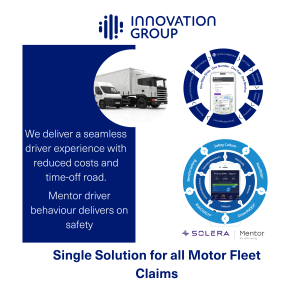While it seems that businesses are generally wanting to give sustainable technologies a chance, there do remain genuine obstacles preventing that from becoming a reality – or at least in the short term.
A recently released report from UPS Sustainability and GreenBiz titled “Curve Ahead: The Future of Fleet Electrification” looked at the barriers and motivators for commercial fleets in adopting new technology for their operations.
Some of the largest concerns highlighted for the EV market included high purchase prices, limited product availability and inadequate charging facilities. Conversely meeting sustainability goals, lower ownership costs, financial incentives and changes to policies were some of the contributing factors to encourage fleet owners to implement a transition to EVs sooner rather than later.
“The challenges of cost and infrastructure requirements can be daunting, but we’ve begun to see solutions emerge,” Scott Phillippi, UPS senior director of automotive maintenance and engineering said.
“The business case, combined with growing preference for EVs from cities and national governments, will help us to reach a tipping point to large-scale EV fleet adoption.”
The report was also quick to highlight the rapid improvements in the marketplace even in the last five to ten years with EV battery prices dropping 79 per cent between 2010 and 2017.
With financial concerns remaining an everpresent problem for fleets, any reduction of initial purchase prices is a sure-fire way to boost confidence in the EV future for both private buyers and the fleet management sector.
Kellen Schefter, senior manager, sustainable technology, EEI said an important factor for fleets was to weigh up whether the long-term savings outweigh the hefty purchase price when considering EV-friendly additions to their fleet.
“We have to recognize that there is still an upfront cost premium for
the technology we’re looking at, and it’s largely driven by the battery cost,” he said.
“We have a good opportunity on fuel costs to save operational money. But the question is, is that fuel cost and maybe the maintenance cost savings, enough to compensate for the upfront purchase prices of the vehicle to make the total cost of ownership work?”
The full report is available for download here.









